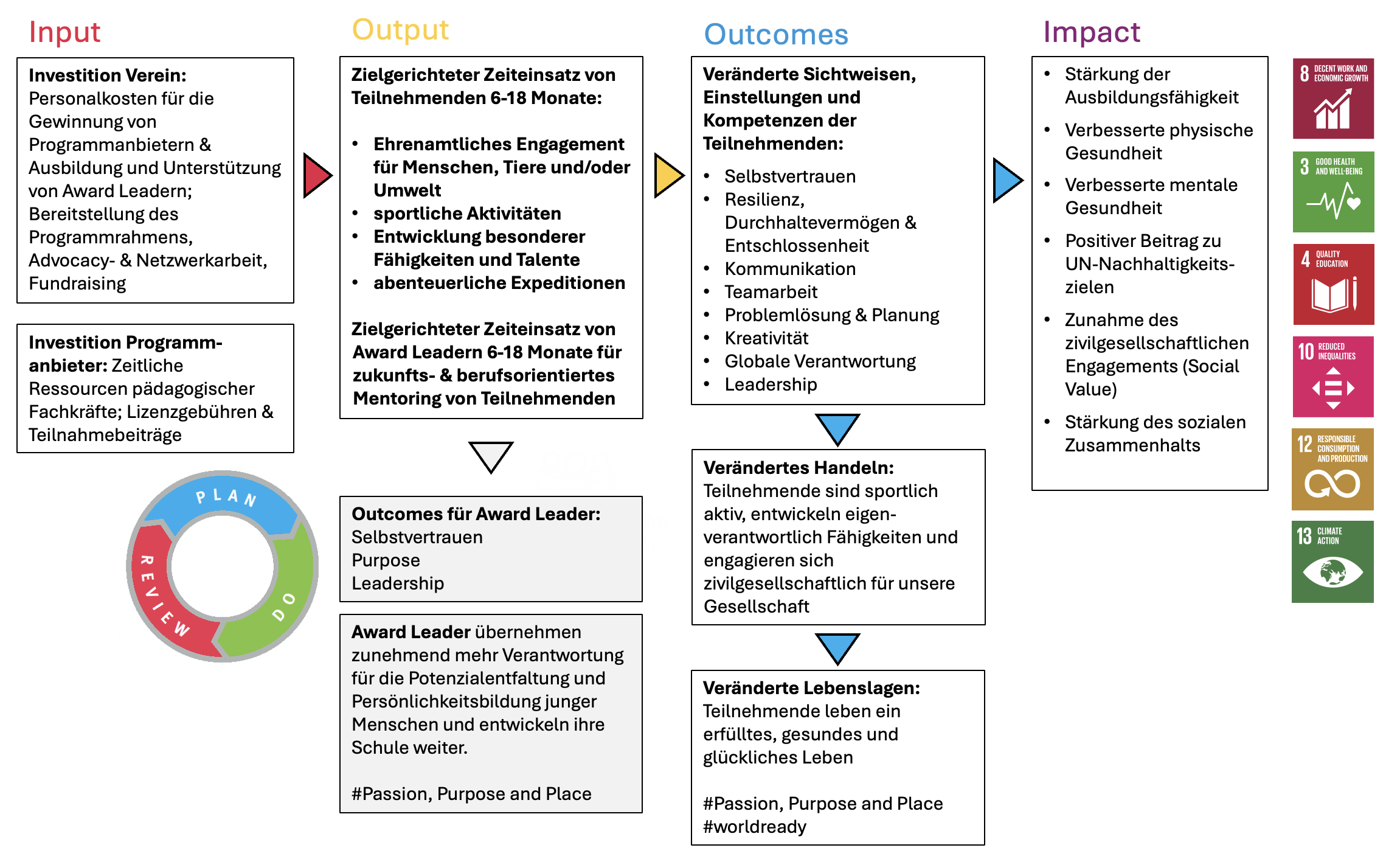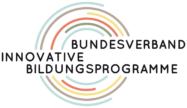Our Theory of Change and why we measure our impact

Our impact logic (own figure)
We measure our impact to be accountable to all stakeholders for our work and to manage our work in an impact-oriented way. Our primary goal is to find out whether and to what extent young people who participate in the Award strengthen their future skills and change their perspectives and attitudes, and to what extent they change their behaviour beyond their participation (more voluntary Service, more sports and outdoor activities, increased and continuous development of skills and abilities). In the long term, we would also like to learn more about the Award’s impact on the lives of our participants and on society.
Our management is based on smart KPIs in relation to the different levels of our impact staircase (Phineo), which we define together with our advisory board. These are evaluated and adapted annually.
We publish the results of our impact assessment in our impact reports, which are prepared in accordance with the Social Reporting Standards. You can find more information there and in the menu on the left (when using on mobile devices, please select from the drop-down menu).
Impact Report 2024 Impact Report 2023 Impact Report 2022 Impact Report 2021 Impact Report 2020
Our vision is a world in which every young person has the opportunity to develop to their full potential, lead a self-determined and fulfilling life and help shape our society.
Our mission is to anchor personal development in educational institutions. We help educational professionals to realise this. We motivate young people to get involved in social and ecological transformation.
We do this with a passion for non-formal education and experiential learning and the desire to contribute to greater educational equality, both socially and individually.
Our association is part of The Duke of Edinburgh’s International Award Foundation, which supports and accompanies national programme providers in over 130 countries.
We are part of the alliance of the largest global youth movements ‘The Big Six’ and cooperate with the UN and WHO, among others, in ongoing projects to contribute to the implementation of the following SDGs:
Our results-orientated management is based on clear KPIs. These are evaluated and adapted annually. Evaluations are based on the OECD’s definition of the five levels of impact (OECD 2009): Input, Activity, Output, Outcome and Impact.
Please refer to our Impact Reports (compliant to Social Reporting Standards) for further information.




